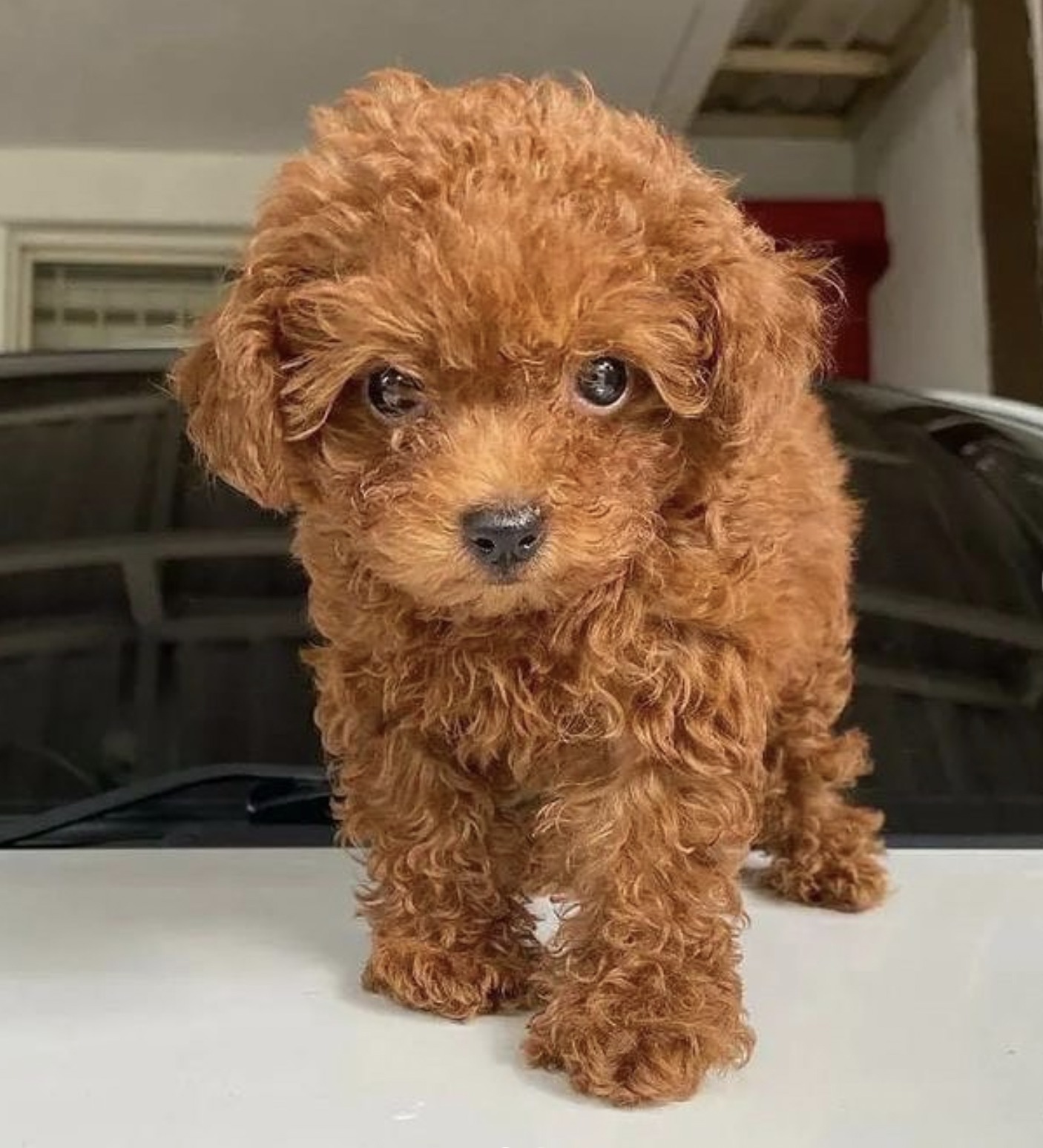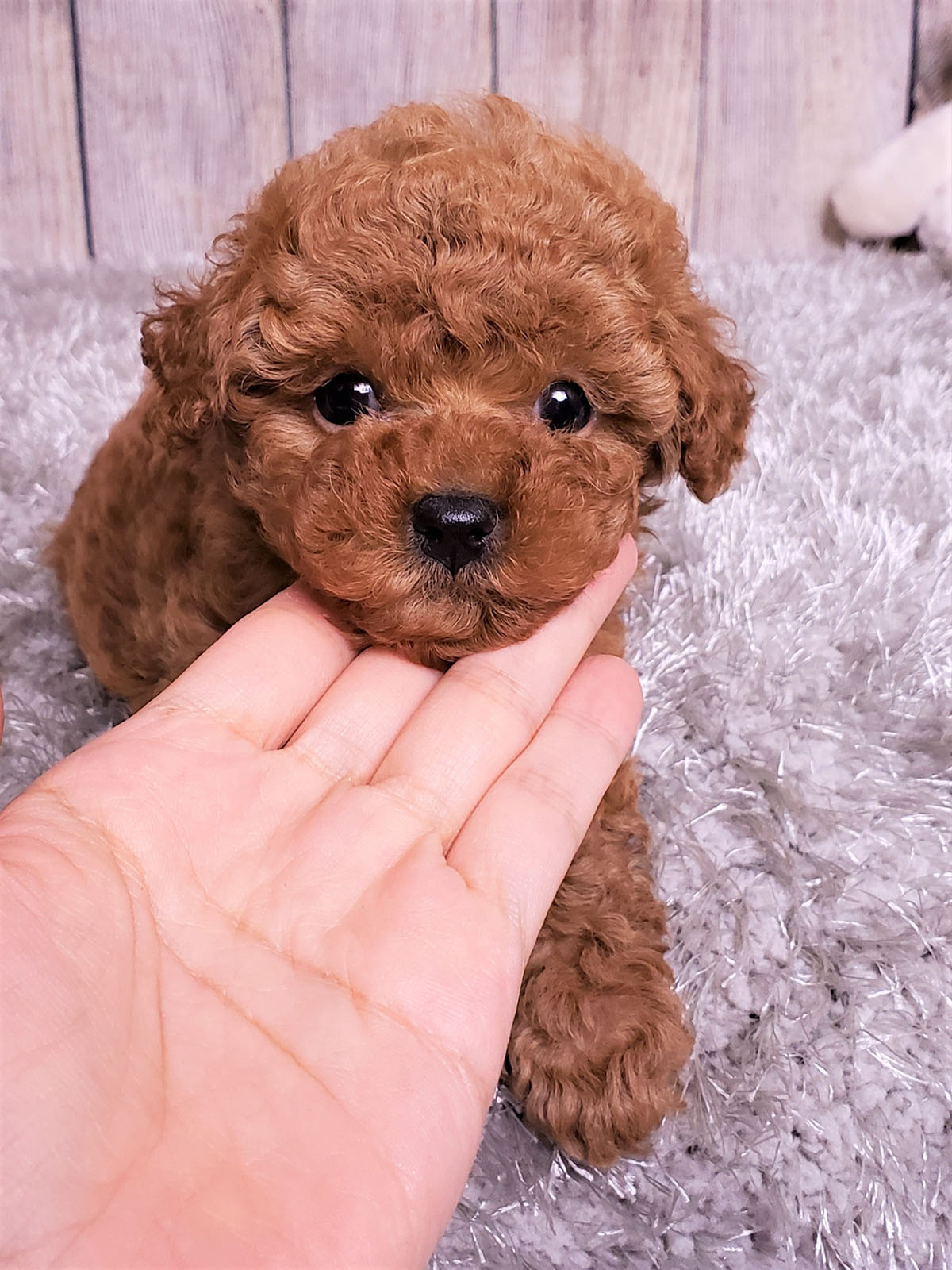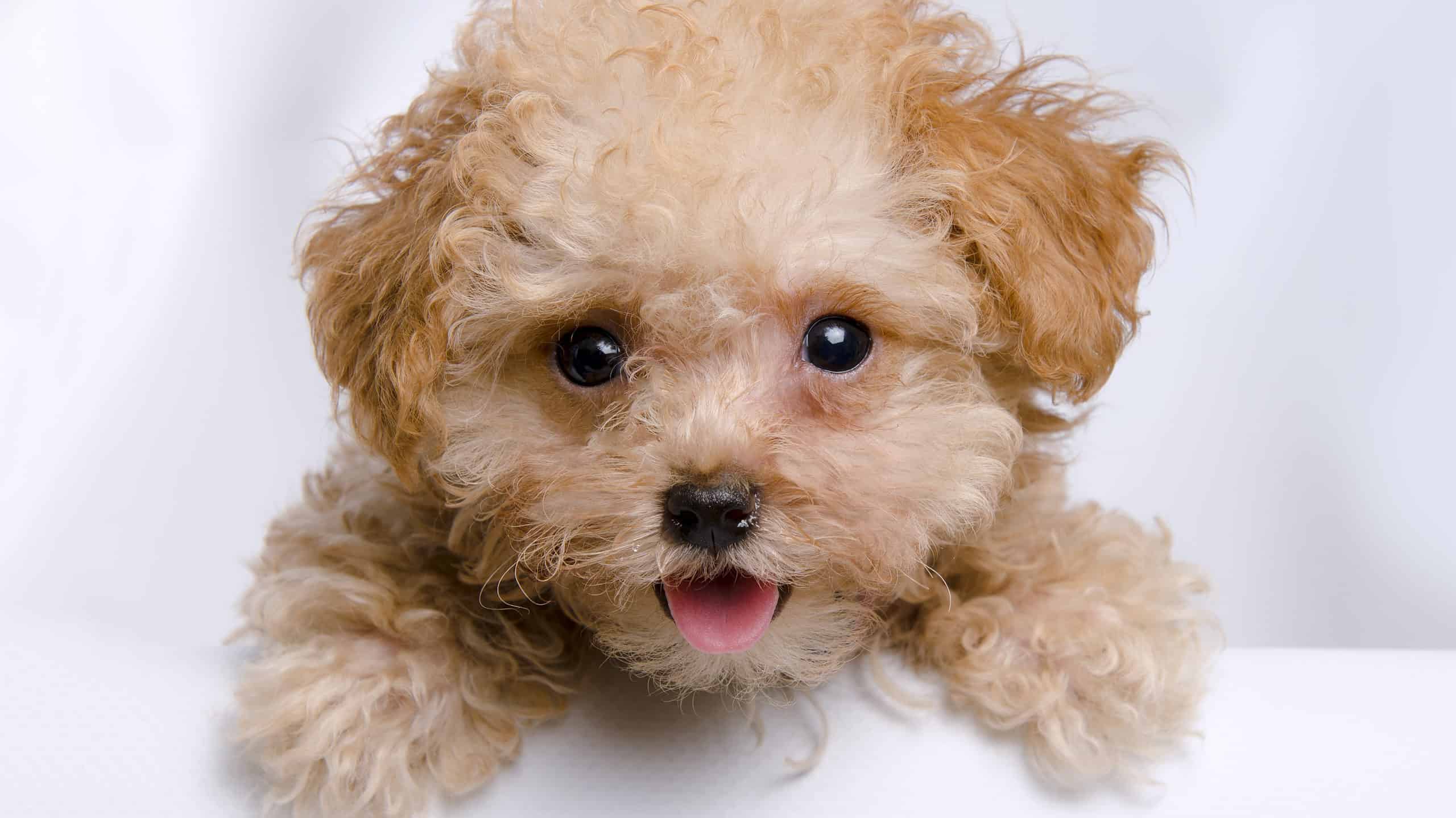Teacup Poodle: The Ultimate Guide To Owning The Cutest Companion
Ever wondered what it’s like to own a teacup poodle? These pint-sized pups have taken the world by storm, and for good reason. They’re not just adorable—they’re also super intelligent, affectionate, and full of personality. If you’re thinking about bringing one of these fluffy darlings into your life, this article’s got you covered. We’ll dive deep into everything you need to know about teacup poodles, from their unique traits to how to care for them like a pro.
Now, before we get too far ahead of ourselves, let’s clear the air. Teacup poodles aren’t just smaller versions of their standard counterparts—they’re a whole different ball game. Their size might make them seem delicate, but trust me, they’ve got big personalities packed into those tiny frames. And if you’re serious about becoming a teacup poodle parent, there’s a lot to learn. But don’t worry, we’ve got all the answers you’re looking for right here.
Whether you’re a seasoned dog owner or a first-timer, this guide will help you navigate the ins and outs of owning a teacup poodle. From choosing the right breeder to understanding their health needs, we’ll break it all down step by step. So grab a cup of coffee, sit back, and let’s dive into the wonderful world of teacup poodles!
Table of Contents
- What is a Teacup Poodle?
- History of the Teacup Poodle
- Teacup Poodle Characteristics
- Health Considerations
- Feeding and Nutrition
- Training Tips
- Grooming Needs
- Choosing a Breeder
- Cost of Ownership
- Frequently Asked Questions
What is a Teacup Poodle?
Alright, let’s start with the basics. A teacup poodle is essentially the smallest version of the poodle breed. They’re not officially recognized by major kennel clubs like the AKC because they’re more of a marketing term than an official classification. But hey, don’t let that deter you—they’re still legit cuties!
Teacup poodles typically weigh less than 6 pounds and stand under 6 inches tall at the shoulder. Their petite size makes them perfect for apartment living or anyone who wants a lap dog. But don’t let their size fool you—they’re just as smart and energetic as their larger cousins.
One thing to keep in mind, though, is that teacup poodles can be more fragile due to their small stature. This means extra care is needed when handling them, especially around kids or other pets. So if you’re thinking about getting one, make sure you’re ready for the responsibility.
- Kaitlan Collins Husband A Closer Look At Their Relationship
- Unraveling The Mystery What Happened To Dr David Jeremiah
- Sofia Vergara Nudes
- Trendgasmoverdrive9clothoff Io
- Bradley Cadenhead Texas The Untold Story Of A Rising Star
Why Teacup Poodles Stand Out
Here’s why teacup poodles have stolen so many hearts:
- They’re incredibly intelligent and easy to train.
- They come in a variety of colors, including black, white, apricot, and silver.
- They’re hypoallergenic, making them ideal for allergy sufferers.
- They’re super affectionate and love being around their humans.
History of the Teacup Poodle
Let’s take a little trip down memory lane. The poodle breed dates back centuries, originating in Germany as a water retriever. Over time, breeders started miniaturizing them to create smaller versions, eventually leading to the toy and teacup sizes we know today.
The teacup poodle, however, is a relatively modern phenomenon. Breeders began selectively breeding toy poodles to produce even smaller pups in the late 20th century. The goal was to create a dog that could fit comfortably in small spaces without sacrificing the poodle’s signature intelligence and charm.
These days, teacup poodles are all the rage among celebs and dog lovers alike. You’ll see them rocking designer outfits, lounging in luxury handbags, and basically living their best lives. But behind all the glitz and glamour lies a loyal companion who just wants to be loved.
Teacup Poodle Characteristics
Now that we’ve covered the basics, let’s talk about what makes teacup poodles so special. Here’s a quick rundown of their key traits:
- Size: As mentioned earlier, teacup poodles are tiny—usually weighing under 6 pounds and standing less than 6 inches tall.
- Coat: Their curly, hypoallergenic coat comes in a range of colors and requires regular grooming to keep it looking its best.
- Temperament: Teacup poodles are known for being friendly, playful, and incredibly smart. They love attention and thrive on human interaction.
- Energy Level: Despite their small size, these dogs have plenty of energy. They need daily exercise and mental stimulation to stay happy and healthy.
It’s worth noting that teacup poodles can sometimes be a bit more sensitive or nervous than their larger counterparts. This is often due to their fragile build and the fact that they’re so small. But with the right care and training, they can grow into confident little companions.
Teacup Poodle Personality Traits
Here’s a fun fact: each teacup poodle has its own unique personality. Some are super outgoing and love meeting new people, while others are more reserved and prefer sticking close to their favorite human. Whatever their personality type, one thing’s for sure—they’re all adorable!
Health Considerations
When it comes to teacup poodles, health is a major concern. Because of their size, they’re more prone to certain health issues than larger dogs. Here are some of the most common ones:
- Hypoglycemia: Low blood sugar is a big issue for teacup poodles, especially when they’re young. It’s important to feed them small meals throughout the day to prevent this.
- Dental Problems: Their tiny mouths can lead to overcrowded teeth, which increases the risk of dental issues. Regular brushing and vet checkups are crucial.
- Joint Issues: Due to their small frame, teacup poodles can be prone to joint problems like luxating patella. Keeping them at a healthy weight and avoiding rough play can help minimize this risk.
It’s also important to choose a reputable breeder who prioritizes the health of their dogs. Reputable breeders will conduct health screenings and provide documentation to ensure their puppies are as healthy as possible.
Preventive Care Tips
Here’s how you can keep your teacup poodle in top shape:
- Feed them a high-quality diet tailored to their size and activity level.
- Brush their teeth regularly to prevent dental disease.
- Schedule regular vet visits for checkups and vaccinations.
- Exercise them daily, but avoid overexertion.
Feeding and Nutrition
Feeding a teacup poodle is a bit different from feeding larger dogs. Because of their tiny size, they have specific nutritional needs that must be met to keep them healthy.
Start by choosing a high-quality dog food that’s specifically formulated for small breeds. Look for one that’s rich in protein and contains all the essential vitamins and minerals they need. Avoid cheap, filler-heavy foods that can lead to health problems down the line.
Feeding schedule-wise, it’s best to offer small meals throughout the day rather than one or two large meals. This helps prevent hypoglycemia and keeps their energy levels stable. And don’t forget to always have fresh water available!
Common Feeding Mistakes
Here are a few common mistakes to avoid when feeding your teacup poodle:
- Overfeeding: This can lead to obesity, which is especially dangerous for such small dogs.
- Feeding human food: While an occasional treat is okay, many human foods are toxic to dogs.
- Skipping meals: Skipping meals can cause hypoglycemia, so it’s important to stick to a regular feeding schedule.
Training Tips
Teacup poodles are incredibly smart, which makes them a joy to train. But because of their size, they can sometimes be a bit stubborn. Here’s how to make the training process smoother:
Start with basic commands like sit, stay, and come. Use positive reinforcement techniques, such as treats and praise, to reward good behavior. Consistency is key, so make sure everyone in the household is on the same page when it comes to training.
Potty training can be a bit of a challenge due to their small bladders, but with patience and persistence, it can be done. Take them out frequently, especially after meals and naps, and reward them when they go in the right spot.
Advanced Training Ideas
Once your teacup poodle has mastered the basics, you can move on to more advanced tricks. Teaching them things like roll over, play dead, or even agility exercises can be a fun way to bond and keep their minds sharp.
Grooming Needs
Teacup poodles have a curly, hypoallergenic coat that requires regular grooming to keep it looking great. Here’s what you need to know:
Brush their coat at least a few times a week to prevent matting and tangling. Depending on the style you want, you may need to take them to a professional groomer every few months for a trim. And don’t forget to clean their ears and clip their nails regularly to keep them comfortable and healthy.
While grooming might seem like a hassle, it’s actually a great bonding opportunity. Plus, it’s a chance to check for any potential health issues, like skin irritations or ear infections.
Grooming Tools You’ll Need
Here’s a list of grooming tools that will make the process easier:
- Slicker brush for detangling
- Grooming scissors for trimming
- Nail clippers for nail trimming
- Eyedropper for ear cleaning
Choosing a Breeder
If you’re planning to buy a teacup poodle, choosing the right breeder is crucial. A reputable breeder will prioritize the health and well-being of their dogs over profit. Here’s how to spot a good one:
- They provide health certificates for their puppies.
- They allow you to visit their facilities and meet the parents.
- They’re knowledgeable about the breed and willing to answer your questions.
- They offer a guarantee or return policy in case something goes wrong.
Stay away from puppy mills or disreputable breeders who prioritize quantity over quality. Doing your research upfront will save you a lot of headaches in the long run.
Cost of Ownership
Owning a teacup poodle comes with certain costs that you should be prepared for. Here’s a breakdown of what you can expect:
- Purchase Price: Teacup poodles can cost anywhere from $800 to $2,000 or more, depending on the breeder and bloodline.
- Veterinary Care: Plan to spend around $500-$1,000 per year on routine vet visits, vaccinations, and preventive care.
- Grooming: Professional grooming can cost $50-$100 every few months, depending on the style.
- Food: High-quality dog food will set you back around $20-$50 per month.
While the upfront costs might seem
- Delicious And Personalized The Art Of Custom Udon Creations
- The Magic Of Star Session Set Your Ultimate Guide To Mastering The Art
- Kiara Peach
- Jasmine Crockett Family
- Jessica Springsteen Married

Teacup Poodle Full Grown (Adult Size & Age Fully Grown)

Brown Teacup Poodle

Teacup Poodle Pictures AZ Animals